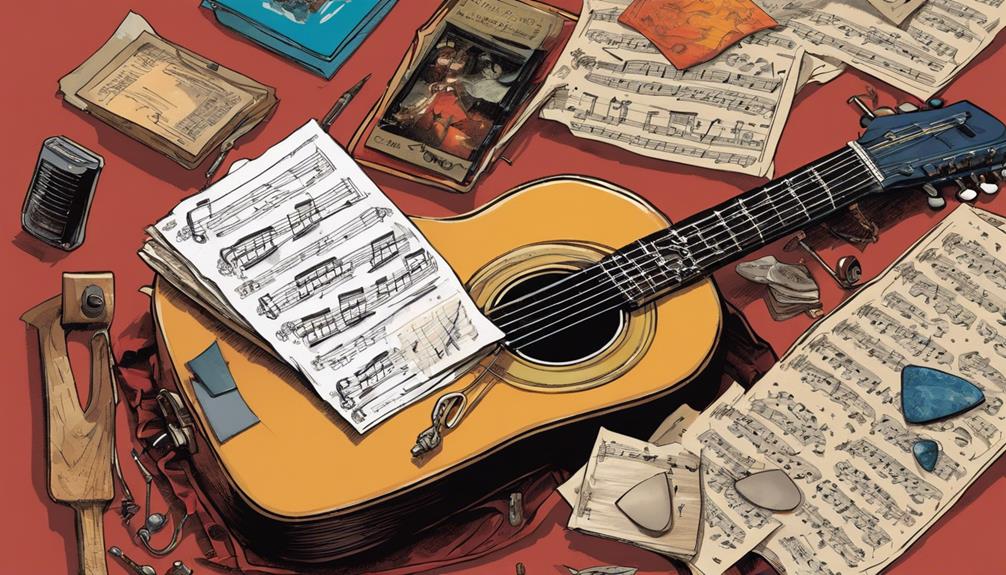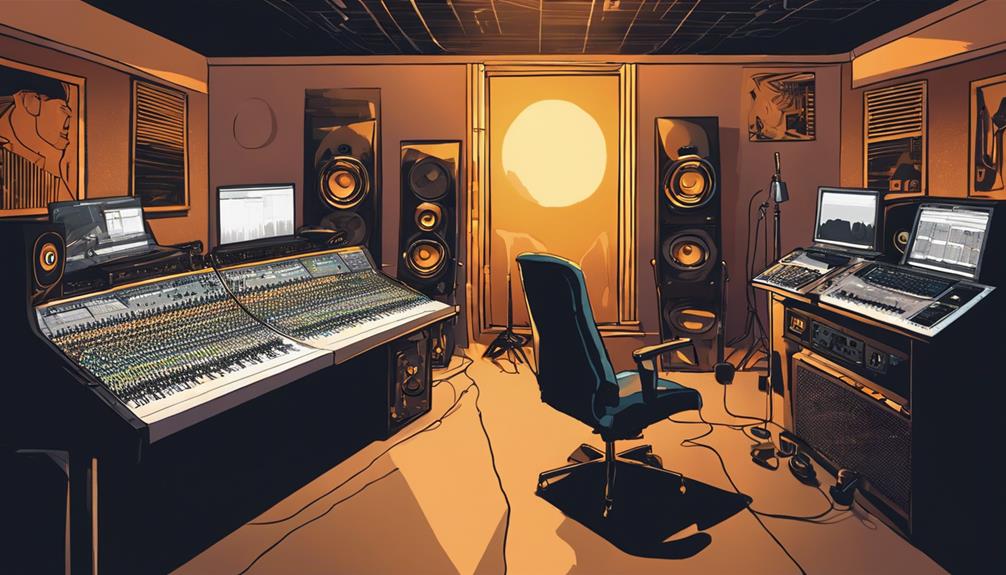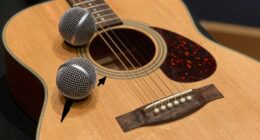To survive music school, you'll need a strategic plan. Start by finding a program that fits your needs, considering factors like faculty expertise, industry connections, and performance opportunities. Set specific, measurable goals for your time in school and beyond. Building relationships with professors and peers is essential, so invest time in networking and collaboration. Consistently delivering quality work and showing up on time will help you build a reputation for reliability, opening doors to new opportunities. By focusing on these key areas, you'll set yourself up for success – and that's just the beginning of your journey.
Key Takeaways
- Research faculties and programs to find the best fit for your music education and career goals.
- Set specific, measurable, and achievable goals for short-term and long-term success in music education.
- Build strong relationships with professors, peers, and industry professionals through networking and collaboration.
- Prioritize reliability by showing up on time, fulfilling commitments, and consistently delivering quality work.
- Focus on building a support network and seeking valuable mentorship to stay motivated and inspired throughout music school.
Find Your Ideal Music Program
As you begin your music education journey, finding the right music program is crucial to your success, and it all starts with researching faculties with a reputation for excellence. You want to attend a school where the professors are industry experts who can provide valuable insights and mentorship.
Look for music programs with strong connections to the music industry, offering internship opportunities and career development support. Consider the location, size of the school, and program curriculum to make certain it aligns with your goals as a music major.
You'll also want to think about the resources available, such as practice rooms and performance opportunities. As a student, you'll want to make connections with your peers and professors, so consider the school's community and culture.
Visiting campuses, attending concerts, and speaking with current students can give you a sense of whether the program is a good fit for you. By doing your research and taking into account these factors, you'll be well on your way to finding your ideal music program.
Long-Term Focus Yields Success

You'll be more likely to thrive in music school by adopting a long-term mindset, where every decision, action, and commitment is guided by your 1, 5, and 10-year goals.
As a music education major, it's essential to prioritize career goals over just obtaining a degree. This means avoiding short-term thinking traps and focusing on consistent effort and care to achieve success.
Here are some key strategies to help you maintain a long-term perspective:
- Set specific, measurable, and achievable goals for 1, 5, and 10 years ahead
- View college as a stepping stone for a successful career, optimizing for valuable connections and opportunities
- Focus on building strong relationships and being reliable and dependable in music settings
- Fulfill commitments and take responsibility for your actions and decisions
- Prioritize consistent effort and care in your music education, avoiding procrastination and shortcuts
Networking Is Key to Success

TEXT:
Here is the output:
Lorem ipsum dolor sit amet, consectetur adipiscing elit.
Sed ac odio at neque mattis volutpat.
Pellentesque euismod arcu nec ante sagittis, sit amet fermentum nisi vehicula.
Vestibulum ante ipsum primis in faucibus orci luctus et ultrices posuere cubilia Curae;
Praesent auctor sem eget ultricies lobortis.
Integer eget enim a nunc cursus semper.
Fusce sollicitudin orci at massa ultricies, non tincidunt justo fermentum.
Nullam auctor justo nec dignissim imperdiet.
Build Strong Relationships Here

By investing time and effort in building strong relationships with professors and peers, you'll create a support network that fosters growth, learning, and future opportunities in the music industry. These connections can lead to valuable mentorship, collaboration, and even performance opportunities.
Some ways to build strong relationships in music school include:
- Seeking out a private teacher for one-on-one guidance and support
- Participating in student teaching programs to gain experience and make connections with music educators
- Joining ensembles like the jazz band to collaborate with peers and professors
- Taking music theory classes to develop your skills and network with like-minded students
- Attending networking events and concerts to meet industry professionals and stay connected with your peers
Reliability Matters in Music

In the high-stakes world of music, your reputation for reliability can make or break your career, as it's the difference between being sought after and being left behind. As a music student, whether in high school or college, you'll quickly learn that dependability matters. It's not just about showing up to rehearsals and performances on time, but also about fulfilling your commitments and responsibilities.
| Reliability in Music | Benefits |
|---|---|
| Showing up on time | Builds trust with peers and faculty |
| Fulfilling commitments | Demonstrates professionalism and dedication |
| Consistently delivering quality | Valued by educators and industry professionals |
In music programs, dependability is essential. Whether you're in a marching band, practicing ear training, or teaching music to others, your reliability will be noticed. By being dependable, you'll open doors to new opportunities, collaborations, and connections in the industry. Remember, your reputation precedes you, so make it a good one.
Frequently Asked Questions
How to Be Successful in Music School?
To be successful in music school, you'll need to dedicate yourself to long-term career goals, build strong relationships with professors and peers, and be reliable in commitments, all while seizing valuable opportunities.
How to Be Successful in Your Music Career?
"While chasing fame, remember to build strong relationships with teachers and peers, as these connections can lead to valuable mentorship and opportunities, ultimately propelling your music career forward."
What Makes a Good Music Student?
To be a good music student, you're dedicated, passionate, and committed, actively seeking feedback, practicing consistently, and aiming for improvement while managing your time effectively and being open to learning from others.
How to Survive the Music Industry?
As you step into the cutthroat music industry, navigate the treacherous waters by building a strong network, staying reliable, and understanding the business side, all while adapting to trends and collaborating with diverse artists.
Conclusion
You've made it through music school. If you've followed these tips, you'll be a master of your craft, ready to take the music world by storm.
Remember, success in music school is just the beginning – it's a lifelong journey. You'll be performing for thousands, collaborating with industry legends, and creating music that will be remembered for generations to come. Along the way, you’ll also navigate the practical side of your career, including making money after music school. Whether it’s through teaching, performing, recording, or even branching out into other creative ventures, your capacity to adapt and innovate will be key. Stay dedicated to your craft, and remember that every step forward is an opportunity to grow both artistically and professionally.
Stay focused, and the sky's the limit.










